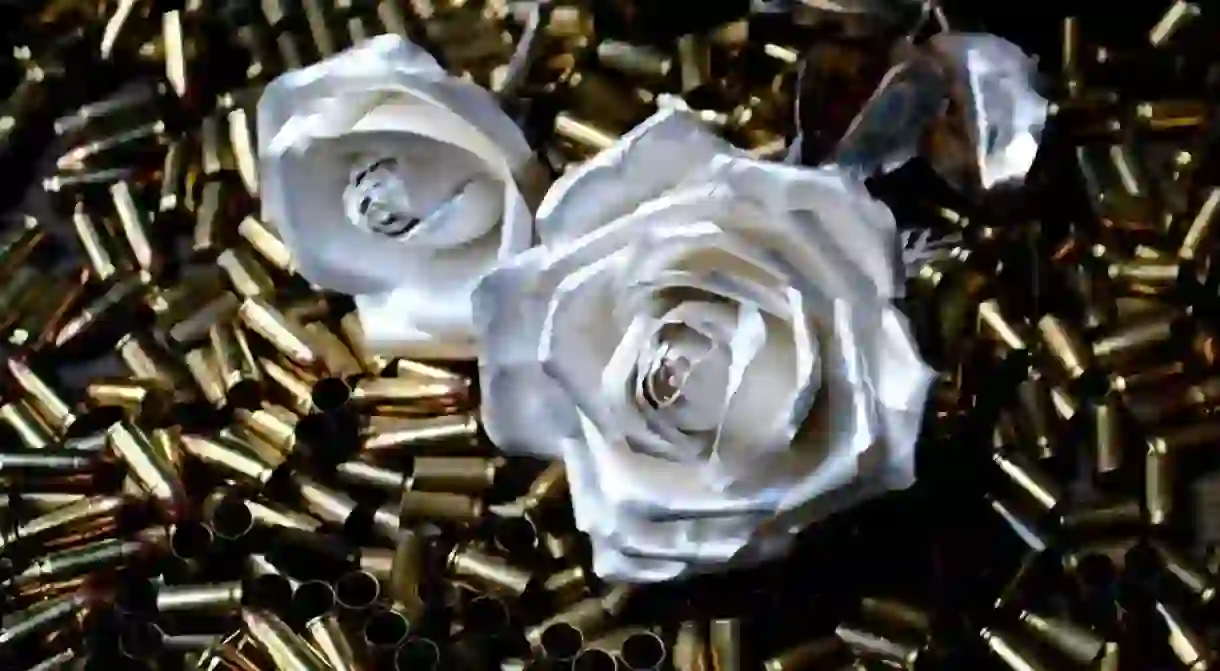Meet Juan Carlos Pallarols, the Artist Who Turns Weapons into Roses

Juan Carlos Pallarols, a master Argentinian silversmith with over 60 years experience, is spearheading a collective art movement attempting to heal the wounds between Argentina and Britain after the Falklands War.
His project, Two Roses for Peace, sees wartime artifacts smelted into metal and crafted into roses, a symbolism of peace and unity designed to bring these two nations closer together. With over 4,000 registered supporters across the globe, his project has extended beyond the Falklands, transforming into a universal message of world peace.

The Falkland War is still a sensitive subject for many Argentinians who believe they are the rightful owners of the islands. Spanish conquistadors of present day Argentina were first to lay claim to the Falklands which lie some 300 miles (480 kilometers) from Patagonia in the Southern Atlantic Ocean. In 1765, however, a British Navy Officer landed on the uninhabited archipelago and declared it property of the British crown who subsequently started a colony in the 1840s.
Almost 150 years later in 1982, the Argentine military junta attempted to reclaim the Falklands in an effort to distract disenfranchised citizens from a stagnant economy and human rights abuses by drumming up nationalistic support. Margaret Thatcher, Britain’s Prime Minister at the time, was also suffering poor approval ratings and saw the logistically difficult challenge of defending the islands as a way to regain votes. After a war that killed over 900 people, most of whom were Argentinians, she succeeded just 74 days later and the islands have remained under British rule ever since.

The war created a deep rift between the two countries who still hold onto a profound animosity today, something that Pallarols is aiming to placate with Two Roses for Peace. His message is one of unity between veterans, families of the fallen, and the larger community on both sides of the conflict. Pallarols believes that dialogue can overcome hostility and that society has matured beyond the need for war. A passionate pacifist, he says that conflict stems from cultural differences, poor communication, fanaticism and arrogance, but symbolism and meaning are more powerful universal traits. His collective artistic movement goes beyond the Falklands – it aims to promote a cultural revolution towards a more peaceful and united humanity.

From his workshop in the San Telmo neighborhood of Buenos Aires, Pallarols supervises the smelting down of all kinds of relics from the Falklands war, mostly ammunition shells, guns and aircraft parts. His volunteers then craft the liquid metal into roses which are engraved with messages of peace, a tribute to the brave soldiers who lost their lives in the war. These elegant metallic roses are then collected by veterans and relatives of the fallen who pass them on to their counterparts on the other side in the hopes of reconciliation.
Pallarols hosts temporary workshops in major cities throughout Argentina and across the globe. His movement has accumulated a lot of international support, with many other workshops being held simultaneously around the world to heal the scars of conflict and promote peace and forgiveness.













